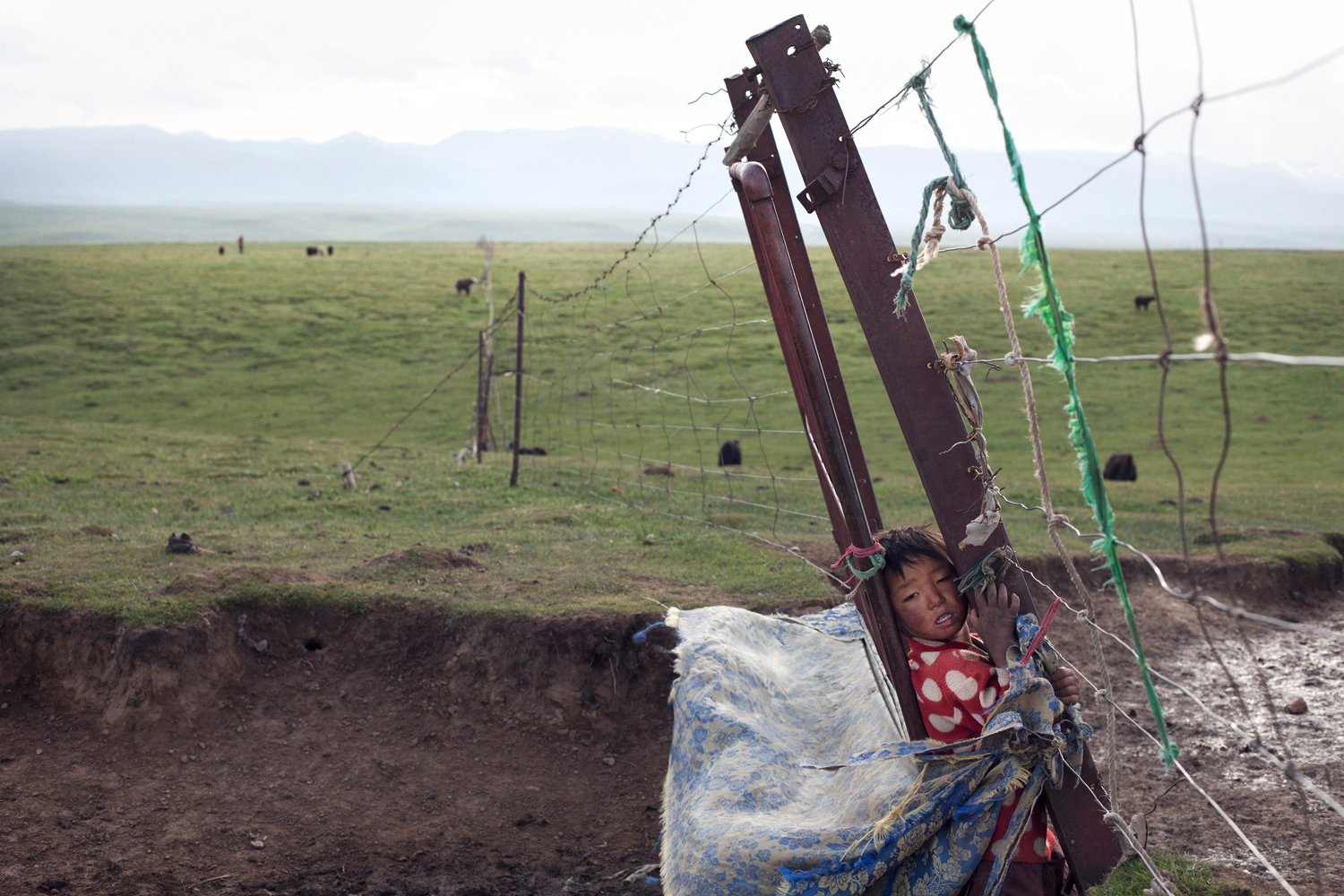
It was early summer and another bus ride on our three-month journey around western China. My companion Wang Qian and I had no pre-planned route. Our only goal was to connect with people and places by relying on a process that was collaborative and intuitive in spirit. Guided by the currents of daily life, we found ourselves absorbed within intimate moments that shaped our experience and understanding of China’s evolving narrative.
After many hours driving through mountains, the bus finally rattled and swerved into a hot desert valley. We were dropped onto a dusty main street where Hui Muslim men and a few Tibetan women candidly observed us from dark storefronts. Across the street two men called us out, curiously expressing surprise at our decision to end up in a place that none of us could find on our worn Qinghai map.
We shared with them where our journey had taken us so far. How the taste of Muslim-made bread in a Xining restaurant lead us to a night watching a band of traveling circus performers in a Salar town. Or how during our search for a remote Tibetan monastery, we found ourselves in the backstreet of a sparsely developed village, falling asleep to the hum of construction work and looped ceremonial chants. And unable to catch a bus as the sun set along the Qinghai-Tibetan highlands, we hitchhiked on a bed of pine tree limbs en route for their transformation to incense in the valley below.
The two men followed our stories by teaching us secret handshakes of the local wool trade and leading us to a former prison turned farmer’s home. Characters scrawled in chalk across a cell block wall read, Zhong Guo Ren Min, Mao Zhu Xi Wang Sui – Chinese People, Long Live Chairman Mao.
We continued to travel the west in this way, drawing on one experience to lead us to the next and observing a mixed sense of contemplation and restlessness. These same feelings traced people’s lives as they navigate regional transformation while trying to retain age-old traditions and practices.
A few weeks later we walked along the Yangtze River as it faded into the horizon’s heavy mist and garcinia greenery. A father gently guided his son through the river’s current; laughing together, the father let his child swim alone for the first time. It was within subtle moments of human interaction like this where we set ourselves adrift to truly experience Western China today.
John Francis Peters is a New York-based photographer and photo editor. LightBox previously featured his work on Morocco’s Changing Culture.
More Must-Reads From TIME
- The 100 Most Influential People of 2024
- The Revolution of Yulia Navalnaya
- 6 Compliments That Land Every Time
- Stop Looking for Your Forever Home
- If You're Dating Right Now , You're Brave: Column
- The AI That Could Heal a Divided Internet
- Fallout Is a Brilliant Model for the Future of Video Game Adaptations
- Want Weekly Recs on What to Watch, Read, and More? Sign Up for Worth Your Time
Contact us at letters@time.com